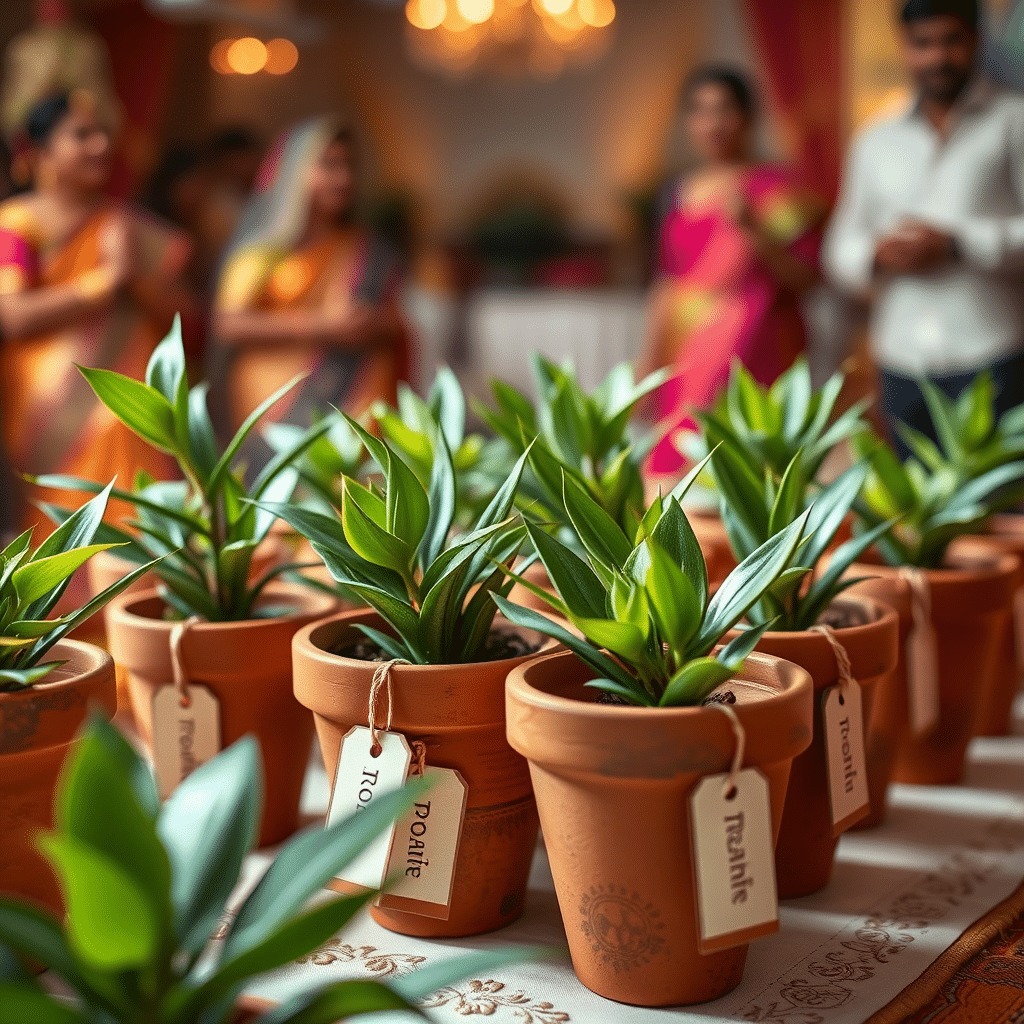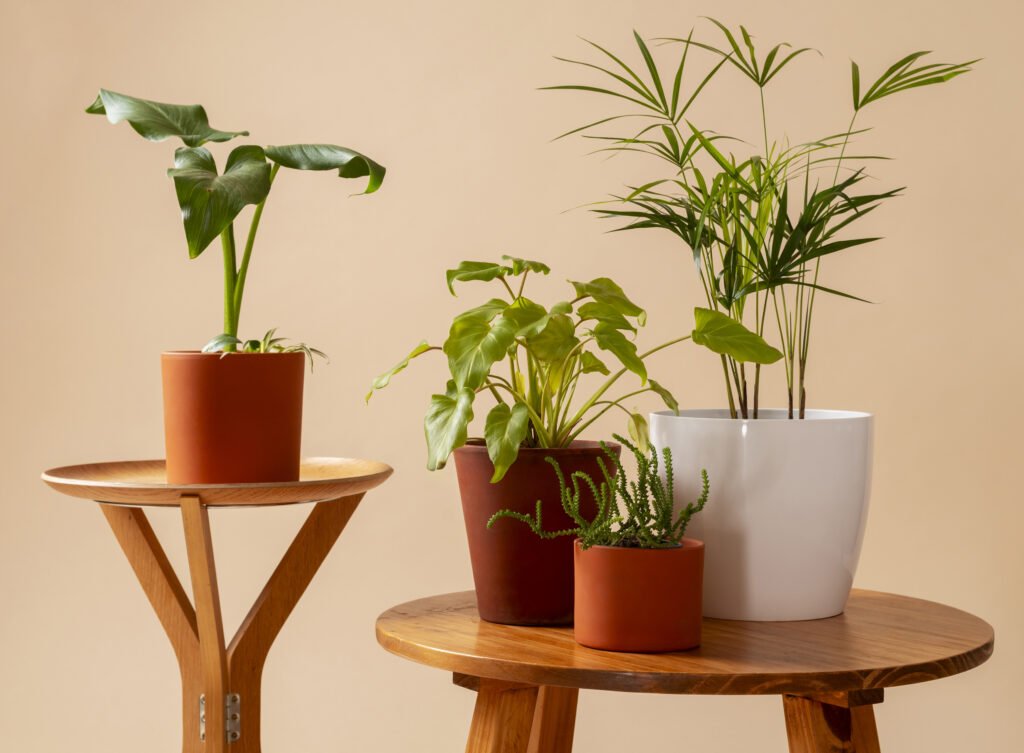
The Art of Gifting Plants: A Guide to Thoughtful and Lasting Green Presents
In recent years, the popularity of plant gifts has skyrocketed, with studies revealing that more than 80% of people love receiving these living, green presents. There’s something undeniably special about gifting a plant – it’s a gesture that symbolizes growth, life, and the promise of a greener future. However, as much as people adore receiving plants, many struggle with the long-term care these gifts require. Initial excitement of receiving a plant often leads to zealous care in the first few weeks. But as time passes, that enthusiasm can wane, leaving gift recipients feeling overwhelmed or unsure about how to properly nurture their new green companion. What may seem like a simple task at first glance isn’t always straightforward, especially in the world of modern indoor plants where the mantra “less is more” often applies.
The Challenge of Plant Care
The journey of plant care is filled with ups and downs. Many gift recipients start with the best intentions, eagerly watering their new plant and finding the perfect spot for it in their home. However, as weeks turn into months, the reality of plant care sets in. Questions start to arise: How often should I water? Is this spot too sunny or too shady? Why are the leaves turning yellow? In absence of proper knowledge and guidance, even the most beautiful and attractive plant gifts can fail to make a lasting impression. The key to successful plant gifting lies not just in selecting an appealing plant, but in ensuring that the recipient has the tools and knowledge to care for it long-term.
Factors to Consider When Gifting Plants
To increase the chances of success for your plant gift, consider the following factors:
- Root Stability: Focus on plants with well-developed root systems. A stable root system is crucial for the plant’s overall health and ability to adapt to its new environment. Plants with established roots are more resilient and have a better chance of thriving in their new home.
- Local Adaptation: Choose plants that are trained or acclimatized to the local environment. A plant that’s used to the climate and conditions of the recipient’s area will have a much easier time adjusting and thriving. For example, a plant accustomed to the temperate conditions of Pune might struggle in Delhi’s extreme climate.
- Easy-Care Varieties: Opt for plants known for their low-maintenance needs. Some excellent choices include:
- Money Plant (Pothos): Known for its air-purifying qualities and ability to thrive in various light conditions.
- Ginseng Ficus Bonsai: A miniature tree that adds a touch of elegance and requires minimal care.
- Fiddle Leaf Fig (Ficus Lyrata): A popular indoor plant with large, violin-shaped leaves that can tolerate some neglect.
- Snake Plant (Sansevieria): An extremely hardy plant that can survive in low light and with infrequent watering.
- ZZ Plant (Zamioculcas Zamiifolia): Another tough plant that can handle low light and irregular watering.
- After-Sales Support: Ensure that timely support is available for the gift recipient. This could be in the form of care instructions, a helpline for queries, or even follow-up check-ins to ensure the plant is thriving.
- Plant Quality Over Packaging: While attractive packaging can make a great first impression, the long-term health and quality of the plant should be the primary focus. A healthy plant in a simple pot is far more valuable than a struggling plant in fancy packaging.
Common Reasons for Plant Gift Failure
Understanding why gifted plants often don’t survive can help you avoid these pitfalls:
- Immature Plants: Gifting plants that aren’t properly mature can set the recipient up for failure. Young plants often require more specialized care and are less resilient to changes in environment.
- Overwatering: This is perhaps the most common mistake, especially with indoor plants. Many people assume that more water equals more care, but this often leads to root rot and other water-related issues.
- Climate Mismatch: Plants brought from significantly different climate zones may struggle to acclimatize. For instance, a plant raised in the temperate climate of Pune might find it challenging to adapt to the extreme temperatures of Delhi.
- Lack of Light: Many indoor plants suffer from insufficient light. Gift recipients might place plants in aesthetically pleasing spots that don’t provide adequate light for the plant’s needs.
- Pest Infestations: Sometimes, plants can come with hidden pests that multiply in their new environment, causing stress and damage to the plant.
Common Mistakes in Plant Gifting
At Plantori, we’ve addressed many of these common issues to ensure that our plant gifts are not only beautiful but also set up for long-term success:
- Locally Adapted Plants: Our Delhi-trained, tissue culture-grown plants are specifically cultivated to thrive in local conditions, making them much easier for newbie gardeners to care for.
- Personalized Support: We offer personalized calls to each gift recipient, providing tailored advice to help them nurture their plant gifts successfully.
- Ongoing Guidance: Throughout the plant’s life, we offer plenty of guidance and support. From troubleshooting common issues to providing seasonal care tips, we’re here to ensure your gift continues to thrive.
- Quality Assurance: Each plant is carefully inspected for health and maturity before being sent out, ensuring that your gift is of the highest quality.
- Sustainable Practices: We prioritize eco-friendly growing methods and packaging, aligning with the environmental values often associated with plant gifting.
Benefits of Gifting Plantori Plants
Avoid these frequent errors when selecting and presenting plant gifts:
- Using Plastic Pots: While convenient, plastic pots aren’t ideal for plant health. They don’t allow proper air circulation for the roots and can retain too much moisture. Opt for terracotta, ceramic, or other breathable materials instead.
- Closed Box Packaging: Packaging plants in closed boxes for extended periods can stress the plant, depriving it of light and fresh air. If packaging is necessary, ensure it allows for some airflow and minimize the time the plant spends in the box.
- Outsourcing to Inexperienced Vendors: Procuring plants from vendors with limited plant knowledge can result in poor quality or inappropriately cared-for plants. Always choose reputable nurseries or plant specialists.
- Ignoring Plant Size: Gifting a plant that’s too large for the recipient’s space can lead to care difficulties. Consider the recipient’s living situation when choosing plant size.
- Neglecting Care Instructions: Failing to provide clear, easy-to-follow care instructions with the plant gift can leave recipients feeling lost and unsure about proper care techniques.
Essential Plant Care Tips for Gift Recipients
To help ensure the success of your plant gift, consider including these care tips:
- Watering: Most indoor plants prefer to dry out slightly between waterings. Always check the soil moisture before watering.
- Light: Research the light requirements of the specific plant and place it accordingly. Many indoor plants prefer bright, indirect light.
- Humidity: Some plants, especially tropical varieties, appreciate higher humidity. Misting or using a pebble tray can help increase humidity around the plant.
- Pruning: Regular pruning helps maintain the plant’s shape and encourages healthy growth. Remove any dead or yellowing leaves promptly. In case of many plants like, ZZ, money plant and its various varieties, the more you prune, the bushier the plants become.
- Place plants away from direct drafts from fan: Direct draft from fan often cause stress and damage the plants.
“I try as much as possible to give you a great basic product and what comes out, I feel, is really amazing.”

Parul Singhal
Founder











